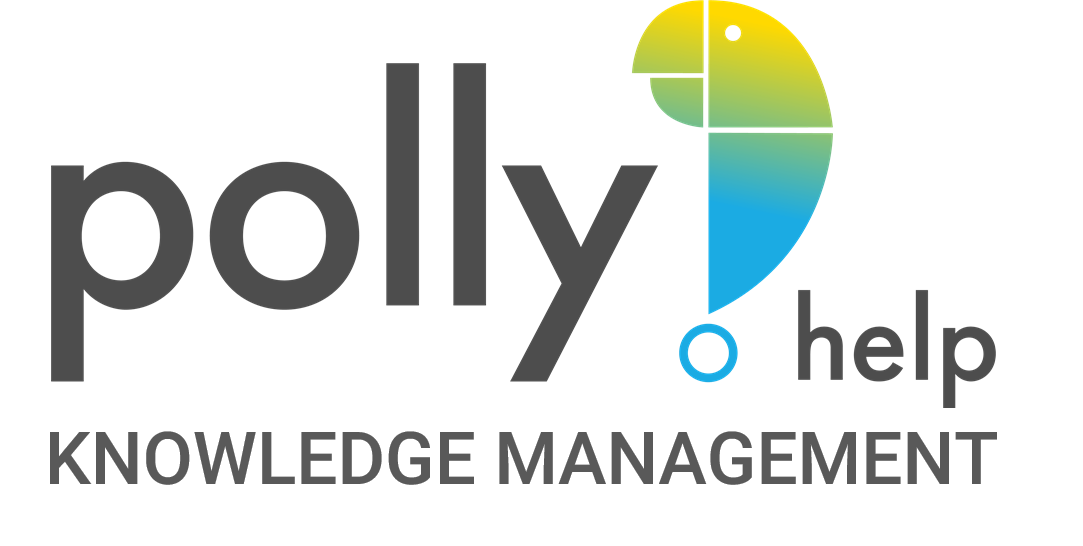Amidst the rapidly evolving knowledge economy, financial institutions are increasingly turning their focus towards refining their corporate knowledge strategy. Standing at the forefront of this transformation is the knowledge management analyst role, a position dedicated to extracting, orchestrating, and harnessing vast amounts of data to fuel strategic business growth. These experts are not only redefining how corporate data is used but are also pivotal in sculpting a data-driven framework that can sustainably support innovative financial services.
Knowledge management analysts employ advanced data science techniques, embracing the deluge of information from diverse sources, such as social media and IoT sensors. Their analytical prowess allows for the identification of fresh revenue streams while stimulating technological innovation. By embedding data-centric insights into every layer of corporate strategy, they initiate a new era of informed decision-making within the financial sector, leveraging analytics for operational excellence and competitive differentiation.
Key Takeaways
- Knowledge management analysts are instrumental in shaping corporate knowledge strategies.
- Their role is central to leveraging big data for informed decision-making in the knowledge economy.
- The use of data science techniques is key in identifying and developing new financial services.
- Through systematic knowledge organization, analysts contribute to innovation and technological advancements.
- A knowledge management analyst is pivotal for integrating knowledge into the strategic initiatives of financial companies.
Introduction to Knowledge Management in Corporate Environments
In today’s business landscape, the efficacy of organizational knowledge management can be the differentiator that sets a company apart. Facilitating this is the adoption of knowledge management (KM) systems within a data-centric corporate environment. By intertwining technology with strategic knowledge processes, businesses are maximizing their potential in a digitized marketplace.
Defining the Function of Knowledge Management
Knowledge Management stands at the heart of an organization’s framework for success. This strategic function embarks on the journey of capturing a company’s collective expertise and converting it into a corporate asset. Critical for driving informed decision-making, KM aids in providing the workforce with necessary, accessible, and updated knowledge—components that underscore competitive advantage in today’s market.
The Evolution of Corporate Strategy and Knowledge Management
The onset of digital transformation has markedly reshaped the terrain of corporate strategy, steering it towards more innovative and agile methodologies influenced by KM practices. This transformative period—marked prominently by the evolution of knowledge strategy—better positions organizations to adapt swiftly to evolving commercial landscapes by harnessing the power of data and analytics. The integrated approach to KM now serves as a blueprint for navigating the demands of modern business ecosystems.
Building the Bridge: Knowledge Management Analysts at the Core of Data-Driven Strategies
In the realm of financial services, where precision and foresight are paramount, knowledge management analysts are the protagonists, turning complex data into a strategic asset. With their expertise, they harness the power of data-driven decision-making to carve out actionable business insights that are not only innovative but also crucial for technological progression within the industry.
Transforming Data into Actionable Insights
These analytical maestros meticulously collate and interpret big data, enabling businesses to react with agility and precision. This transformation is the backbone of modern financial institutions, where every byte of data has the potential to influence the trajectory of market decisions and financial policies. Below is an overview of how knowledge management analysts convert raw data into pivotal business intelligence:
- Analyze consumer behavior to tailor financial products and services.
- Utilize advanced analytic tools to forecast market trends and investment risks.
- Interpret financial data to recommend cost-effective business strategies.
Supporting Innovation and Technological Advancement
The thrust towards innovation and the embracement of emerging technologies are other areas where knowledge management analysts offer considerable value. They support the creation and improvement of digital financial solutions that range from online banking platforms to fintech applications. Witness the table below for a snapshot of their contributions to technological enhancement:
| Innovation Domain | Technologies Supported | Impact on Financial Services |
|---|---|---|
| Digital Payments | Blockchain, Cryptocurrencies | Facilitates secure, immediate transactions |
| Risk Management | AI, Machine Learning | Enables predictive modeling for credit and investment risks |
| Customer Service | Chatbots, AI Interfacing | Improves client engagement and satisfaction |
In the intricate dance of market forces and corporate endeavor, knowledge management analysts remain the unsung heroes. Their analytical prowess fosters data-driven decision-making, propagates actionable business insights, and underpins innovation support, thereby ensuring that the financial sector not only keeps pace with change but sets the rhythm for the future.
Data Science: The Technical Backbone of Knowledge Management Analysts
In the domain of financial data analytics, the art and science of extracting significant insights from vast sums of data cannot function without the robust support of technology architectures. Knowledge management analysts depend heavily on data science methodologies to navigate through the complex terrain of data they encounter daily. From raw information to actionable business intelligence, it’s the methodical application of data science that illuminates the path.
Data science not just acts as a technical backbone but as a catalyst in propelling knowledge management analysts toward innovative problem-solving and strategic thinking. The following table illustrates the key components of data science that empower these analysts:
| Data Science Components | Role in Knowledge Management | Impact on Financial Strategies |
|---|---|---|
| Data Mining | Identifying patterns and relationships in data | Formulating predictive models |
| Machine Learning | Automating analytical model building | Enhancing algorithmic trading strategies |
| Big Data Technologies | Processing large datasets efficiently | Driving decisions with real-time analytics |
| Advanced Analytics | Generating deeper insights | Optimizing risk management |
| Data Visualization | Communicating findings effectively | Improving stakeholder engagement |
Through the application of these data science components, knowledge management analysts can confidently navigate the complexities of financial data, ensuring that they are not only able to maintain pace with, but also proactively define, the technological advancements within their field. This deep integration of data science within knowledge management is not just a strategy, but a necessity in the information-rich world of financial services.
Knowledge Management Analyst as a Strategist in Financial Services
The ascendancy of Knowledge Management Analysts within the FinTech industry extends beyond mere data interpretation, forming a nexus at which strategic knowledge management intersects with actionable business methodologies. These analysts possess a keen ability to distill complex financial data analysis into innovative financial products, services, and e-service strategies that align closely with market demand and customer expectations.
Small and medium-sized enterprises (SMEs) in particular have much to gain from the expertise offered by these strategists in the FinTech sector. Resource limitations are a common hurdle for SMEs, yet with adept analysts who can efficiently manage substantial data sets, financial service providers can tailor their offerings for maximum relevance and impact.
- Strategically Leveraging Financial Datasets
- Augmenting E-Service Platforms for SMEs
- Innovating Customer-Centric Financial Solutions
Through a blend of trend analysis and the creative application of technological advancements, these specialists support the incessant evolution of financial services.
| Strategic Initiative | Benefits for SMEs | Impact on FinTech Service Delivery |
|---|---|---|
| Customized Financial Products | Personalized solutions to meet specific business needs | Increased customer satisfaction and loyalty |
| Data-Driven Market Analysis | Insights into market trends for better decision-making | Proactive adaptation to market changes |
| Advanced Risk Assessment | Improved financial stability through predictive analytics | Enhanced ability to mitigate financial risks |
The strategic aspects of knowledge management not only streamline operational aspects but also propel forward-thinking initiatives that keep pace with the dynamic realm of FinTech. The role of the Knowledge Management Analyst as a strategist is, therefore, paramount in shoring up the competitive stance of companies reliant on financial innovation.
Integrating Knowledge Management Practices into Organizational Culture
As the business landscape continues to evolve, the infusion of knowledge management practices within organizational culture is becoming critical for companies seeking sustainable success. At the heart of this transition lies the concept of knowledge-driven decision making, a methodology that empowers employees and stakeholders to use acquired knowledge to steer business directions effectively. An environment that emphasizes knowledge as a core value lays the groundwork for an adaptive, future-forward enterprise.
Creating a Knowledge-Driven Workforce
Establishing a knowledge-driven workforce is a multifaceted endeavor. It requires a deep commitment to changing the corporate mindset to one that treasures collective intelligence and expertise. Encouraging employee engagement in knowledge sharing sessions and making information access a day-to-day standard operation can propel an organization towards becoming a leader in its respective industry. This initiative is not only about accessing data but also about analyzing and applying it in a manner that enhances decision-making and productivity.
Promoting Continuous Learning and Development
The pursuit of continuous improvement is heavily reliant on fostering a culture of learning and personal development. Providing opportunities for professional growth, whether through in-house training, workshops, or digital learning platforms, helps to cement knowledge as a critical cornerstone of organizational culture. Continuous learning environments motivate teams to excel, innovate, and ultimately drive the organization forward amidst a constantly changing economic landscape.
- Investment in training programs for skill enhancement
- Regular knowledge sharing workshops and seminars
- Establishment of incentivized learning and development initiatives
Optimizing Operational Efficiency through Knowledge Management
The intersection of knowledge management and big data analytics has become a cornerstone of achieving heightened operational efficiency within the financial sector. Companies that harness the power of process innovation foster a more agile, responsive, and efficient organizational structure. Harnessing big data analytics translates into a significant competitive edge, empowering institutions to make data-driven decisions that align with market dynamics and customer expectations. Herein lies the formula to optimize operations and cultivate industry leadership.
Improving Decision Making and Process Innovation
Revolutionizing traditional methodologies, knowledge management introduces systematic process innovation, transforming the decision-making landscape. This strategic foresight is manifested not just in leadership choices but across every tier of operation, ensuring comprehensive elevation of efficiency. Staying ahead of trends, anticipating customer needs, and refining operational processes, financial enterprises create a culture of continual improvement and strategic foresight.
By consistently analyzing internal processes and feeding the loop of feedback and implementation, financial institutions create a dynamic environment where innovative practices become standard. These process improvements are depicted in the following table, showcasing their impact on operational efficiency:
| Operational Area | Traditional Approach | Process Innovation |
|---|---|---|
| Customer Onboarding | Manual entry, paper-based forms | Digital forms, automated verifications |
| Risk Assessment | Heuristic, experience-based | Data-driven, predictive modeling |
| Service Delivery | Standardized offerings | Customized services based on data analytics |
| Market Analysis | Quarterly reporting | Real-time data dashboards |
Leveraging Big Data for Competitive Advantage
Big data analytics serve as an indispensable tool, revealing patterns, trends, and correlations that influence strategic decisions. Financial companies embracing big data open doors to preemptively identifying market shifts, optimizing customer experiences, and introducing predictive models that minimize risk. As the industry becomes more complex and intertwined with technology, reliance on robust analytical tools will differentiate the market’s leaders from its followers.
In utilizing big data, organizations achieve real-time monitoring and response mechanisms, forecasting, and preemptive decision-making capabilities. These big data analytical strategies convert vast volumes of disparate information into actionable knowledge, signaling the advent of a new era in the competitive financial landscape. Ultimate operational efficiency is achieved when data ceases to be merely a resource and transforms into the very foundation of growth-oriented strategies.
Collaboration and Knowledge Sharing: A Cultural Imperative
In the realm of the knowledge economy, the ability of an organization to seamlessly collaborate and share expertise is not just a convenience—it’s a strategic imperative. The shift toward knowledge collaboration across various departments and teams necessitates a breakdown of traditional silos that have historically hindered information flow. An organizational culture rooted in trust is instrumental in facilitating these changes, which in turn can lead to a substantial increase in innovative capacity and responsiveness to market dynamics.
Breaking Down Silos for Enhanced Information Flow
To reach the zenith of operational success, a business must optimize the flow of information. Disassembling the metaphorical silos within an organization encourages a culture where knowledge collaboration thrives, and where insights from various facets of the business inform and amplify each other. This interconnected approach ensures a robust information flow, enabling quick access to expertise and accelerating the decision-making process.
Building a Culture of Trust and Open Communication
Central to the fostering of an environment where knowledge is freely exchanged is the establishment of organizational trust. When employees feel valued and secure in sharing their ideas, there’s a natural increase in the quality and quantity of communication. Open dialogue and transparency are the cornerstones of such a culture, laying the groundwork for not only robust knowledge sharing but also a strong alignment between various organizational units, all of which are critical components of a dynamic, forward-looking business.
Knowledge Management Systems: Infrastructure for Strategic Growth
Knowledge management systems act as a cornerstone in the strategic infrastructure development of modern organizations. They lay the groundwork for a cohesive framework that fosters the accumulation, accessing, and sharing of institutional knowledge. The impact of such systems on corporate strategy is multi-faceted, driving growth through improved employee synergy and client engagement.
The effectiveness of knowledge management systems is manifested in their role in connecting various stakeholders. They act as an interface that efficiently bridges the gap between information seekers and information providers, thus nurturing an ecosystem where knowledge is not just stored, but actively utilized.
Key advantages of implementing knowledge management systems include:
- Centralized repository of information, streamlining data retrieval
- Enhanced communication among employees, promoting innovation
- Accelerated orientation and training process for new hires
- Improved customer service through quick access to relevant information
The table below highlights the strategic contributions of such systems across different organizational dimensions:
| Organizational Dimension | Contribution of Knowledge Management Systems |
|---|---|
| Operational Efficiency | Reduces time spent on locating and verifying information allowing for smoother project workflows. |
| Strategic Decision-Making | Provides data-driven insights that assist in long-term business planning and market analysis. |
| Innovation and Growth | Encourages the cross-pollination of ideas, paving the way for innovative solutions and services. |
| Client Experience | Facilitates faster response times to client queries with accurate, comprehensive knowledge. |
The integration of knowledge management systems is pivotal in scaffolding an organization’s strategy around robust, scalable, and dynamic frameworks. These systems harness the collective intelligence of an organization, spotlighting the importance of knowledge as both an asset and a process instrumental to sustained strategic infrastructure development.
The Future of Fintech: Enhanced Roles for Knowledge Management Analysts
As the financial landscape evolves, the role of knowledge management analysts is becoming increasingly critical. Being at the crossroads between the future of FinTech and the latest trends in data analytics, these professionals are anticipated to take on a vital role in shaping financial decision-making. The prominence of data analytics marks a shift towards more sophisticated analytical approaches to finance, transforming the way institutions operate. Analysts are poised to play a pivotal part in employing these analytical advancements to fuel strategic decisions, undeniably influencing the course of financial enterprises.
The Rise of Data Analytics in Financial Decision-Making
In the upcoming era, the importance of data analytics in steering financial choices is expected to grow exponentially. The depth of analysis provided by knowledge management analysts will transcend traditional metrics, empowering institutions to make complex financial decisions with greater confidence. Innovative data-driven strategies are anticipated to emerge, revolutionizing financial services and creating a competitive edge for those who embrace them. The expertise of knowledge management analysts will be fundamental in mining insights from data, thus enabling real-time and forward-looking decisions that can redefine financial success.
Navigating through Regulatory Changes and Technological Disruptions
Amidst technological disruption, knowledge management analysts are becoming the navigators for financial institutions as they face a sea of regulatory changes. These changes—often global in scope—are reconstituting the landscape of risk and compliance in the Fintech sector. Knowledge management analysts will be the torchbearers of regulatory compliance, fusing their understanding of data analytics with a keen awareness of the regulatory environment. As disruptive FinTech innovations emerge, these professionals will serve as the lynchpin for companies to pivot quickly, adapting to new technologies and policies with agility, ensuring that financial institutions not only survive but thrive in the turbulent tides of change.
FAQ
What is the role of Knowledge Management Analysts in corporate strategy?
Knowledge Management Analysts play a critical role in corporate strategy by leveraging big data and data science techniques to support operational and strategic initiatives. They are fundamental in the knowledge economy, helping organizations harness data-driven decision-making and contributing to the development of new revenue streams.
How does Knowledge Management function within corporate environments?
Knowledge Management involves collecting, organizing, retaining, and sharing company knowledge and employee expertise. It ensures that employees have access to critical insights, supports informed decision-making, and fosters a competitive advantage within a data-centric corporate environment.
What is the significance of data science methodologies in Knowledge Management?
Data science methodologies provide the technical backbone for Knowledge Management Analysts. They use these tools to analyze financial data, support technology architectures, and develop workflows crucial for financial strategies and operations.
How do Knowledge Management Analysts contribute to the FinTech industry?
In the FinTech industry, Knowledge Management Analysts act as strategists, using large data sets to inform the creation of growth-oriented services. Their financial data analysis helps service providers introduce innovative solutions that meet evolving market demands.
What are the benefits of integrating Knowledge Management practices into organizational culture?
Integrating Knowledge Management practices enhances organizational culture by encouraging knowledge-driven decision making and fostering continuous improvement. It helps create a knowledge-driven workforce and promotes a culture of continuous learning and development.
How does Knowledge Management improve operational efficiency?
Knowledge Management improves operational efficiency by employing big data analytics, advancing process innovation, and leveraging information to gain a competitive edge. This results in better decision-making, customer behavior analysis, and enables real-time business process optimization.
Why is collaboration and knowledge sharing important in organizations?
Collaboration and knowledge sharing are essential for breaking down information silos and improving information flow, fostering knowledge collaboration. It builds a culture of trust and open communication, leading to enhanced organizational trust and the efficient distribution of knowledge.
What purpose do Knowledge Management Systems serve in an organization?
Knowledge Management Systems provide the infrastructure needed for strategic growth by structuring organizational knowledge. These systems connect staff seeking information with knowledgeable colleagues, thereby aiding in strategic infrastructure development and improving customer experience.
How is the FinTech sector evolving with respect to Knowledge Management Analysts?
As data analytics becomes more central to financial decision-making, the role of Knowledge Management Analysts in FinTech is expanding. They are crucial for navigating regulatory compliance, adapting to technological disruption, and ensuring that financial institutions remain competitive and compliant.
How do Knowledge Management Analysts support innovation and technological advancement in financial services?
These analysts are pivotal in transforming data into actionable business insights and support innovation in financial services. They apply data science to develop digital financing and investment services, enhance e-service offerings, and support the creation of digital payment solutions.
What challenges are Knowledge Management Analysts expected to manage in the future?
Knowledge Management Analysts are expected to tackle challenges such as adapting to new regulatory frameworks, managing technological advancements, and maintaining compliance. They will apply their expertise to guide financial institutions through these changes, ensuring strategic growth and innovation.






